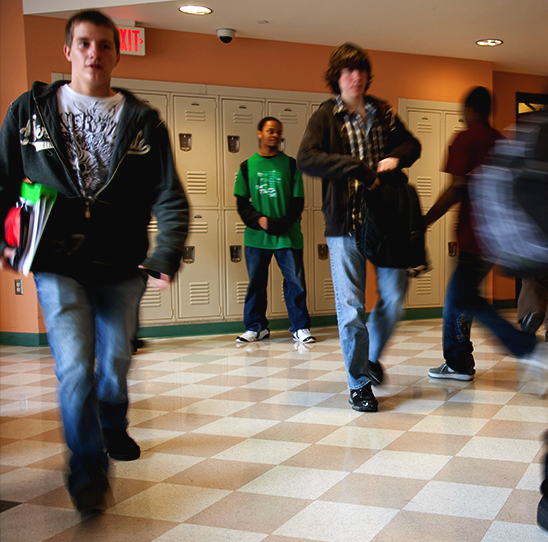Last year, the U.S. Department of Education awarded $3.97 million to the School District of Philadelphia (SDP), in partnership with Research for Action (RFA), through the Education Innovation and Research (EIR) program. This EIR grant funds the implementation, scaling, and evaluation of Relationships First (RF). RF is a multi-tiered system of supports (MTSS) and schoolwide restorative justice model that prioritizes racial equity, trauma-informed practice, buy-in (from youth and adults), and youth leadership. RF focuses on building relationships between K-12 students and adults in their school communities.
SDP’s development of the RF program was informed by both research and practitioner insights about the shortcomings of other restorative justice and MTSS models. RF programming combines a restorative justice model with a relationships-centered MTSS approach. This relationships-centered approach is an alternative to punitive school discipline, including exclusionary practices such as expulsion and out-of-school suspension.
Contemporary literature highlights the consequences of punitive discipline, including the phenomenon of the “school-to-prison” pipeline (Augustine et al., 2018; Skiba et al., 2014; Leung-Gagné, et. al, 2022). Students experiencing exclusionary punitive discipline are more likely to have negative impacts on their wellbeing and academic outcomes (Anyon et al., 2016; Whitley, Beauchamp, & Brown, 2021; Welsh, 2022). Relationships First counteracts the impacts of punitive discipline by cultivating relationships in the school community. As these relationships develop, a communal and collaborative approach is used as the first step in addressing school discipline. RF seeks to create a more equitable and positive school climate while also improving school discipline issues, academic outcomes, and SEL outcomes.
Research for Action is the independent evaluator responsible for conducting a rigorous mixed methods evaluation and providing best practices to SDP’s Relationships First program, exploring the impact in Philadelphia’s public schools. RFA’s evaluation and EIR grant support will aid SDP in gradually scaling the program to 72 schools during a five-year project period from January 2023 to December 2027.
This partnership between SDP and RFA comes at a crucial time when more high-quality research is needed to determine the effectiveness of restorative justice models in schools. Studies suggests that it could positively impact school discipline disparities, student behavioral issues, and school climate (Darling-Hammond et al., 2020; Gregory et al., 2016; Katic, Alba, & Johnson, 2020). These studies consistently implore other researchers to conduct further research on restorative justice models to impact implementation, policy, and practice.
Over the course of this grant, RFA plans to write more blog posts exploring related topics within this larger study, including literature reviews on school discipline, school-to-prison pipeline, alternatives to punitive discipline (for example restorative justice), and high-level findings from our learnings.
